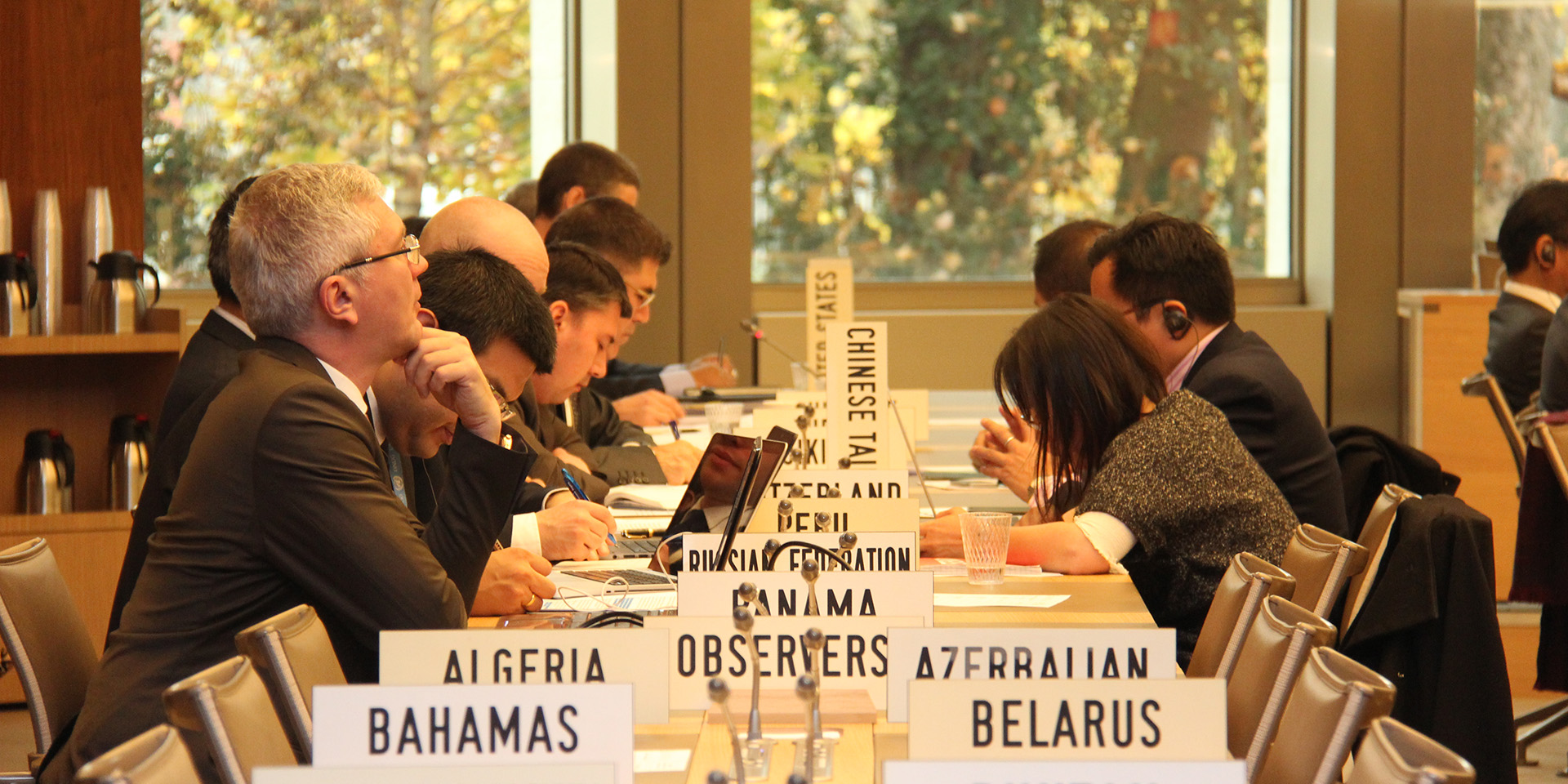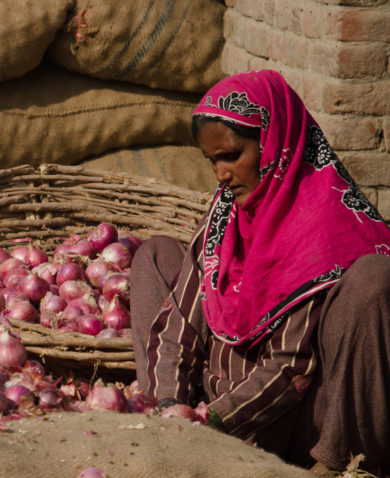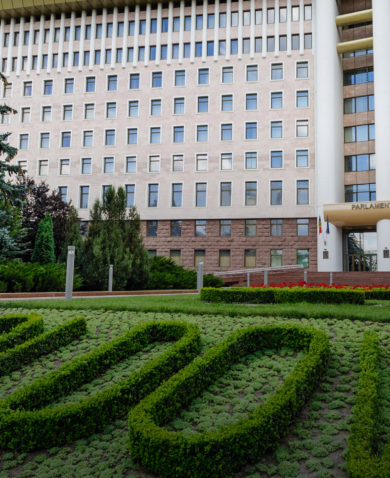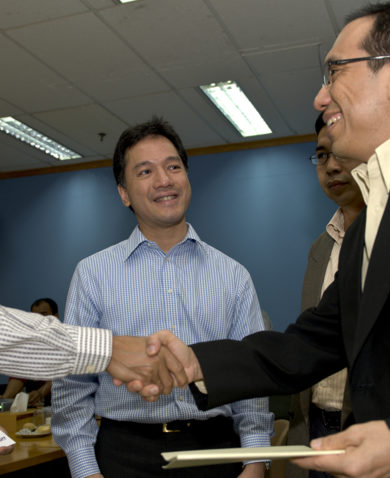
6 Ways to Make Free Trade Work for Developing Countries
February 2, 2016 | 3 Minute ReadWorld Trade Organization delegates meet to discuss Afghanistan's bid for accession. In this post, David Fischer and Christy Sisko explain how free trade can benefit developing countries.
Last year was a busy one for international trade and development actors. We observed major progress in the renewal of the African Growth and Opportunity Act, continued global ratification of the World Trade Organization Trade Facilitation Agreement, proposal of the Tripartite Free Trade Area in Africa, and announcement of the Trans-Pacific Partnership, all of which bring new attention to the interrelationship between global trade and sustainable development.
But are these trade liberalization agreements sufficient to address the bottlenecks and barriers that continue to constrain economic growth and poverty elimination in developing economies? Do these economies have the resources to implement what they are signing up for? And what is the role of development actors in mitigating the drawbacks of agreements they are supporting accession to? These are all important questions, as it is in everyone’s interest that these agreements should leverage the highest and most inclusive economic benefit, and not benefit some at the expense of others.
As we know, trade liberalization affects different economies and actors within those economies in different ways. Vocal critics of free trade argue that removing all barriers and other protectionist measures will devastate economies, incite dumping, put enterprises out of business, displace communities, and shut factories. And yes, without appropriate planning, that might happen.
One timely case of a country in need of assistance is that of Afghanistan, which was granted membership to the World Trade Organization on December 17, 2015, after many years of technical assistance and policy reform efforts. Optimists in the international community cite more favorable trading opportunities, investment climate and economic growth as benefits to WTO membership. However, due to several factors ranging from poor infrastructure, weak governance, and pervasive insecurity, media outlets including the New York Times and a recent study by the United Nations Economic and Social Commission for Asia and the Pacific cite several potential drawbacks to membership that may negatively impact government revenue, historically strategic sectors, and vulnerable smallholder farmers. The articles highlight lingering challenges and capacity constraints that will need to be addressed together by development actors, government institutions, and the private sector.
Many opportunities exist to prepare weak economies like Afghanistan for trade liberalization at the enabling environment level, sector level, enterprise level, and social level. For example:
- Supporting investment in regional value chains and promoting inter-regional trade can expose and unlock the comparative advantages of economies. It can also facilitate regional distribution of agricultural inputs for increased agricultural production and profitability. Working through regional industry associations, the USAID Regional Agricultural Trade Expansion Support (RATES) project established a market information system, harmonized regional trade policy, and laid the foundation for a structured trading system to engage in increase cross-border trade, access regional markets, and increase food security.
- Harmonizing regional policy through legal and regulatory reform can give domestic and international investors access to larger markets on a regional basis, supporting economies of scale and cost competitiveness. The USAID Southern Africa Trade Hub’s support for the regional Single Administrative Document reduced transport costs by introducing a single, standardized document for customs clearance throughout the region and supporting the establishment of a Free Trade Agreement in Southern Africa.
- Investing in technical and vocational education and training can help upgrade the skills of the labor force to meet the demands of the private sector. In Rwanda, decentralized vocational education and training programs, such as the Higa Ubeho project, are providing training in plumbing, electricity, cooking, welding, construction, masonry, automobile mechanics, and public works to supply needed skills to continue the country’s rapid economic growth.
- Building the capacity of institutions in investment promotion and export development can help implement needed enabling environment reforms and sensitize the private sector to barriers lifted and opportunities created. In the West Bank, the USAID Investment Climate Improvement (ICI) project simplified the tax payment structure and greatly streamlined the business registration process, making it easier and less risky for investors to start operations and for the government to collect revenue.
- Sector-based support for industries that have a comparative advantage will promote systemic changes for greater impact than supporting specific firms. The Afghanistan Regional Agricultural Development (RADP) programs are supporting fruit, nut and vegetable agribusinesses in new product development, processing, and packaging technology. They are also establishing export market linkages to help build competitiveness and exploit opening regional markets for agricultural products.
- Entrepreneurship programs have proven to spur new sectors, especially in the services industry, which many economies still lag behind on, in comparison to other regional countries. Under the Egypt Competitiveness Project (ECP), the roll-out of the U.S. State Department’s Global Entrepreneurship Program actively promoted entrepreneurship development and the start-up of new businesses by creating awareness of how to transform creative ideas into business realities.
Looking to 2016 and beyond, this fresh attention to trade and development may incite a renewed focus on developing countries and least developed countries in particular on some of their specific priorities such as agricultural subsidies and market access. Development actors need to maintain close communication with host-country policy-makers, the private sector, and civil society to make sure that their programming remains current and consistent with the needs of these economies. They should also leverage the increased capacity of host-countries’ public sectors, private sectors, and civil societies to create the needed momentum for increased and inclusive economic growth.





















































